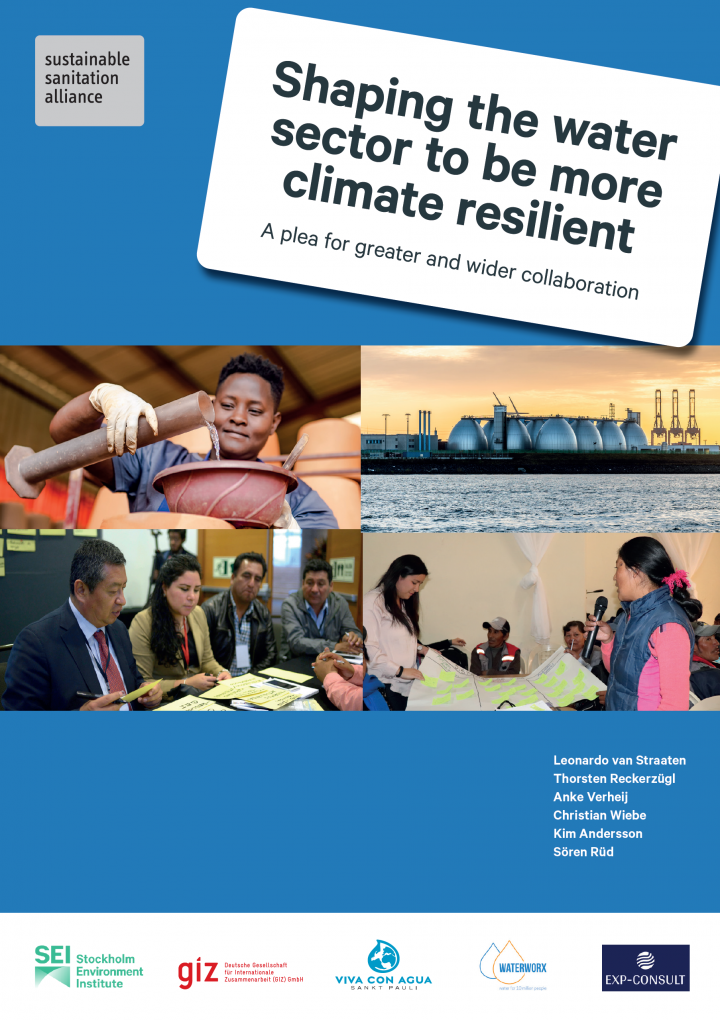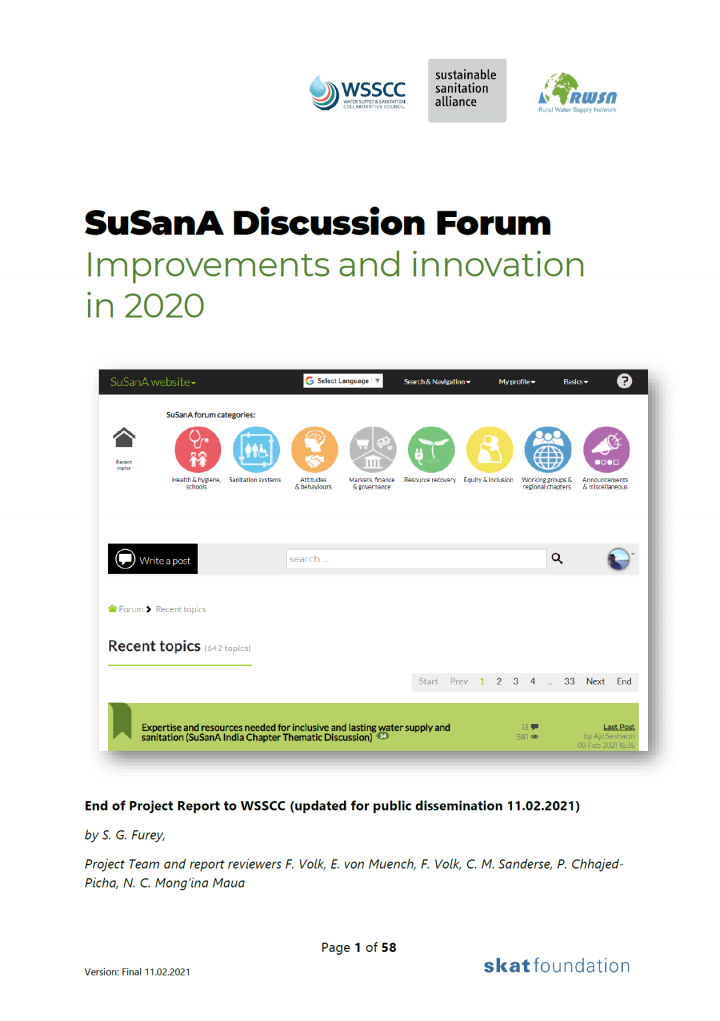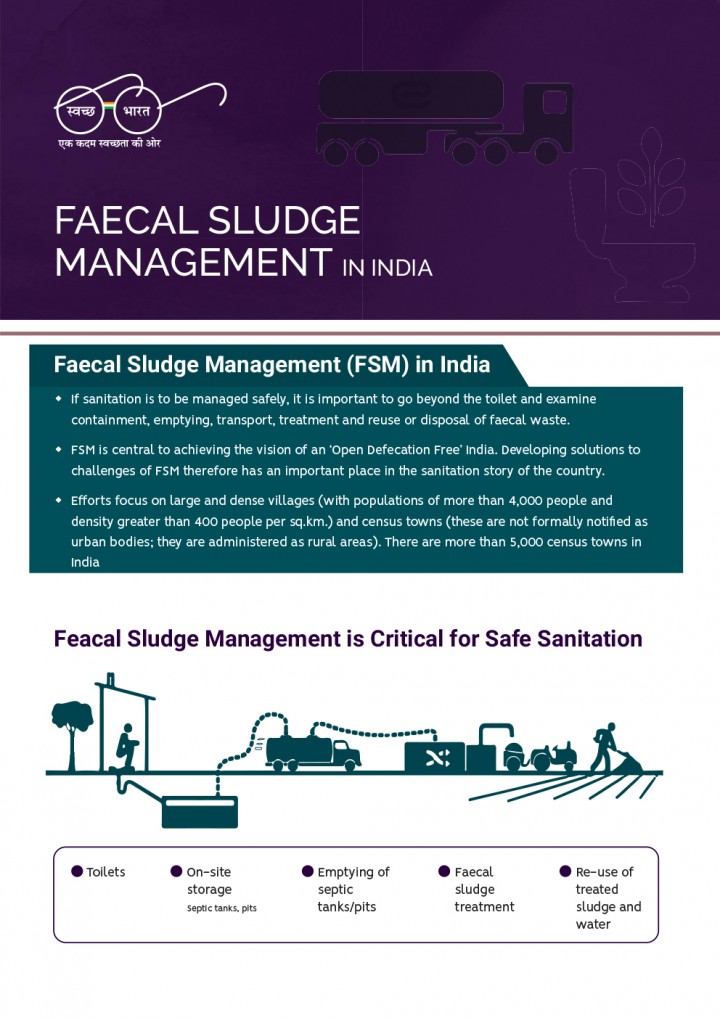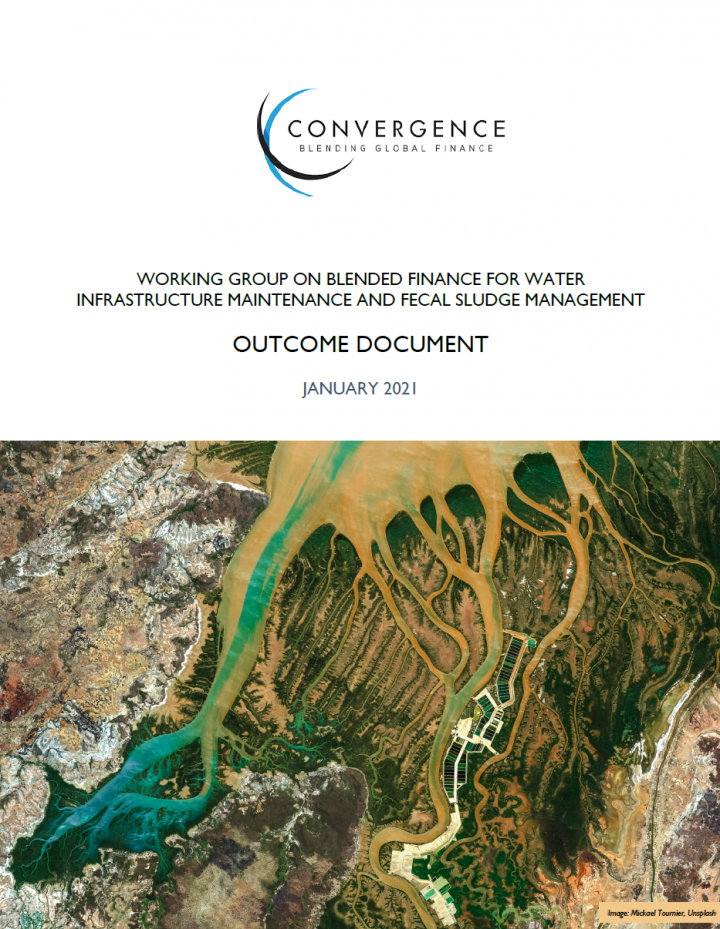Searching for information on Sanitation Workers?
The Sanitation Workers Knowledge + Learning Hub is the best source for all current news, trends, articles and updates on sanitation workers rights around the world.
The modern Hydram uses a very old principle of physics in a simple but effective way to
move water from a stream or river to places where it is most needed. Where there is suitable
clean water available, it can provide supplies to remote houses or communities, allow
irrigation of inaccessible areas and maintain feed water for stock in areas at a distance from
water sources.
The use of a …
Panchayats have been assigned the responsibility for executing rural water and sanitation. To do this successfully as equal partners with the government and engineers, they need a lot of support over the long term. The government and NGOs who will support them have important roles to play to ensure quality water and sanitation services are provided in the long term in an an equitable manner.
DECENTRALIZATION The beginnings of decentralization in Côte d'Ivoire date back to the colonial period, when the country was a French colony with the existence of mixed communes and municipal councils (partly elected and partly appointed). Medium-sized communes were run by councils headed by “Mayor Administrators” appointed by the Central Colonial Government. Large communes were administered …
The USAID/West Africa Municipal Water, Sanitation and Hygiene Activity (MuniWASH) is a five-year project currently operating in Benin and Cote d’Ivoire, which is funded by the United States Agency for International Development (USAID) and implemented by Tetra Tech. MuniWASH supports municipalities to provide sustainable water and sanitation services to vulnerable and underserved populations in …
Decentralization in Benin. In February 1990, the Conférence de Forces Vives de la Nation defined the Government of Benin’s plan to grant communes more legal and financial autonomy. The Beninese government outlined a vision that “Benin is organized into autonomous spaces, called communes, intended as public spaces of freedom, as initiatives, as an exercise of citizens' rights and …
Today, 1.42 billion people – including 450 million children – live in areas of high or extremely high water vulnerability. Less than 3 per cent of the world’s water resources is freshwater, and it is growing increasingly scarce.
Decades of misuse, poor management, over-extraction of groundwater and contamination of freshwater supplies have exacerbated water stress. At the same time, …
Celebrating World Water Day 2021 on March 22nd, six experts, backed by five organizations (Stockholm Environment Institute, GIZ, Viva con Agua, WaterWorX and EXP-Consult) present a plea for greater and wider collaboration to shape the water sector to become more climate resilient. Improved management of water and sanitation services is fundamental not only for climate change adaptation but also …
This report is a summary of a virtual meeting held on 9th September 2020, and hosted by the University of Leeds. The background information is found below.
In Phase 3 the SFD-PI are working to enhance the tools and resources available to support users to produce an SFD graphic. The inherent simplicity of the SFD should make it accessible to a wide range of stakeholders. However, the experience …
Sanitation and hygiene are the foundation of healthy cities. They are a primary prerequisite for the health of our societies as well as economic development. However, achieving safe and sustainable urban sanitation for all has proven to be difficult, especially for the vulnerable and poor.
The publication "A Sanitation Journey - Principles, Approaches and Tools for Urban Sanitation" provides …
Faecal sludge management is recognized globally as an essential component of city-wide inclusive sanitation. However, a major gap in developing appropriate and adequate management and monitoring for faecal sludge is the ability to understand and predict the characteristics and volumes of accumulated faecal sludge, and correlations to source populations. Since standard methods for sampling and …
Cholera outbreaks occur almost every year during the monsoon season in Nepal. The 1.3 million people living in the Kathmandu Valley are some of the most affected and vulnerable in the country. The earthquakes in 2015 caused massive population displacement and increased the potential for an outbreak as a result of the widespread destruction of water supply infrastructure and sanitation facilities. …
UNICEF was part of the front-line response to the 2018 floods and their devastating consequences in the Indian State of Kerala. UNICEF’s work focussed on supporting WASH services and equipment in affected communities. UNICEF, with the support of national and regional-level administrations, local non-governmental organisations (NGOs), community-level organisations as well as national and local …
In 2017, the Government of Pakistan rolled out Joint Sector Reviews (JSR) in four provinces in order to periodically assess the performance of the water, sanitation and hygiene (WASH) sector. UNICEF, the Government, development partners, and civil society participated in the process, using the WASH Bottleneck Analysis Tool (WASH-BAT) as a guiding framework. The WASH-BAT, which was designed by …
The Government of Afghanistan is investigating service delivery options to achieve access to safe and affordable drinking water (SDG Goal 6.1). One option to provide rural communities with sustainable and quality water is metered household water connections. The Afghan government began supporting such an approach in 2006 which it began to scale-up in 2016. This study documents and assesses …
In December 2017, the European Union Catalytic Support to Peace Building (EU-CSPB) Programme supported the rollout of a peacebuilding plan led by the Government of Sri Lanka and other partners. This programme supported a managed aquifer recharge (MAR) strategy in Jaffna to encourage the resettlement of communities after years of internal conflict.
To pilot a MAR feasibility study in Jaffna, …
UNICEF’s water, sanitation and hygiene (WASH) country teams work inclusively with governments, civil society partners and donors, to improve WASH services for children and adolescents, and the families and caregivers who support them. UNICEF works in over 100 countries worldwide to improve water and sanitation services, as well as basic hygiene practices. This publication is part of the UNICEF …
Rangpur City Corporation (RpCC) is one of the twelve City Corporations in Bangladesh and is located in the Rangpur division, northern region of the country. The geographical coordinates of Rangpur City Corporation are 25.56° North and 89.25° East. Rangpur became a City Corporation from Paurashava on 28 June 2012 with an area of 205.7 km2, and is divided into 33 Wards. Figure 1 shows the …
Dhulikhel municipality is located in Kavrepalanchok district of Bagmati province, Nepal. The municipality is divided into 12 wards. The municipality is home to 33,981 people as per census 2011. The population growth rate was 0.65% per year from 2001 to 2011.
There are two major highways, B.P highway and Arniko Highway which pass through Dhulikhel. Dhulikhel is located at Eastern rim of …
Current solid and liquid waste disposal practices is far from desirable and needs a rethink and an innovative approach with emphasis on conservation and reuse to meet the goals of clean, healthy and liveable villages. Indiscriminate and uncontrolled abstraction has resulted in significant fall of ground water. Compounding the falling ground water table is the contamination of groundwater from …
The Plus Codes are a unique solution, a digital address given to every location on earth. Shelter Associates and UNICEF partnered to map social and basic services of the slum settlements with unique location codes. This location code can be used on Google Maps and will allow slum residents to access services such as postal, emergency services, gas cylinders and other online services. In addition …
Many women and girls worldwide do not have the knowledge, skills, services, and products or support to ensure their well-being during menstruation. Due to the link of menstruation with health, education, water and sanitation, and socio-economic factors, these challenges are even more urgent for those who menstruate in low- and middle- income countries (LMICs). At the same time, there is evidence …
From the executive summary:
• This report summarises the work done under a grant from WSSCC (via UNOPS Geneva) to Skat Foundation to run and develop the SuSanA Forum.
• The SuSanA Forum is a well-established, vibrant online community within the sanitation sector and a major global knowledge exchange hub on topics relating to practical implementation, research and policy. It is an …
The Faecal Sludge and Septage Management: Service Business Models shares leading practices and innovations to improve how faecal sludge is managed, and how to expand services to the millions of people living in thousands of cities in urban India, lacking access to safely managed sanitation.
Over the course of three months, a Working Group comprised of over 50 organizations explored the use of blended finance in two important segments of water service delivery and sanitation: (1) repair and maintenance of water infrastructure in less densely populated areas; and (2) fecal sludge management. Commissioned by the Swedish International Development Cooperation Agency (Sida), this Outcome …








































